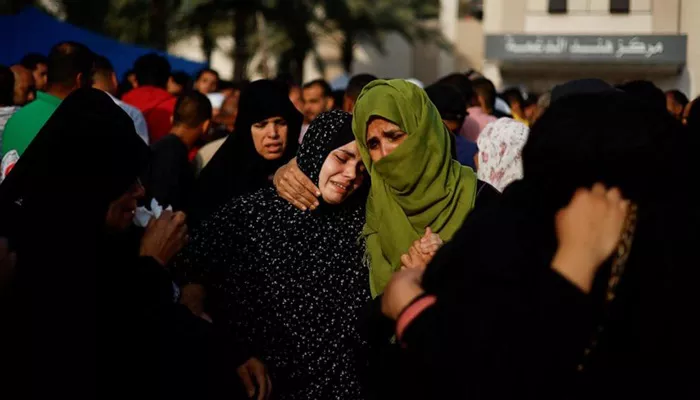An estimated 50,000 women in Gaza are currently pregnant, with about 130 giving birth daily, according to UN reports. The ongoing Israel-Hamas conflict has severely impacted Gaza’s healthcare system, putting women and girls at heightened risk of pregnancy complications and violence.
Health Services in Crisis
Since the conflict escalated in October 2023, many healthcare facilities in Gaza have been destroyed. The World Health Organization (WHO) reports that 19 of Gaza’s 36 hospitals are non-functional, while 17 others operate with limited capacity. Supplies are scarce, and most facilities are ill-equipped to manage patient care effectively.
“Even what we are calling ‘functioning’ is barely functioning,” said Penninah Kyoyagala, head of the Gaza office for the United Nations Population Fund (UNFPA). The agency specializes in sexual health and reproductive rights.
Mounting Death Toll and Worsening Conditions
Gaza’s health ministry estimates the death toll has approached 44,000. Hundreds of thousands of displaced residents are coping with severe injuries, outbreaks of antibiotic-resistant infections, and other health crises. Recently, the WHO completed a polio vaccination campaign after the virus was detected in sewage earlier this year.
“The conditions on the ground are harrowing,” Kyoyagala told Euronews Health, citing her previous humanitarian experiences in Uganda and Afghanistan.
UNFPA’s Efforts for Pregnant Women
UNFPA has deployed six mobile maternity units in central Gaza to provide critical care for pregnant women. These trucks are equipped as clinics, featuring a waiting area, delivery room, and recovery space. Three units offer prenatal care, delivery services, postnatal care, infection treatment, and contraception. Another three are capable of performing C-sections.
Despite these efforts, the units can handle only a fraction of the demand, assisting with 24 to 36 of Gaza’s estimated 130 daily births. Supplies are running low, limiting the reach of these services.
Aid Blockades and Increasing Violence
Humanitarian aid remains largely blocked, exacerbating the crisis. “Humanitarian missions are being delayed and blocked,” Kyoyagala said. On Saturday, 100 trucks carrying food and essential supplies were looted in southern Gaza, forcing them to turn back. The Gaza interior ministry, under Hamas control, reported executing 20 individuals in connection with the looting as part of a crackdown on gangs.
Severe shortages of medicines, warm clothing, tents, fuel, and spare generator parts have further limited UNFPA’s ability to operate. Reports of domestic abuse, sexual assault, and gender-based violence have surged amid the deteriorating conditions.
Global Concerns Over Humanitarian Aid
The European Institute for Gender Equality highlights how armed conflicts worsen gender-based violence due to pre-existing inequalities and precarious living conditions. In mid-October, the U.S. called on Israel to improve Gaza’s humanitarian conditions but later concluded that Israel was not obstructing aid, contrary to assessments by humanitarian groups.
Aid organizations describe the situation as “dire,” warning that Palestinians in northern Gaza face imminent risks of death from disease, famine, and violence.
Related Topics:


